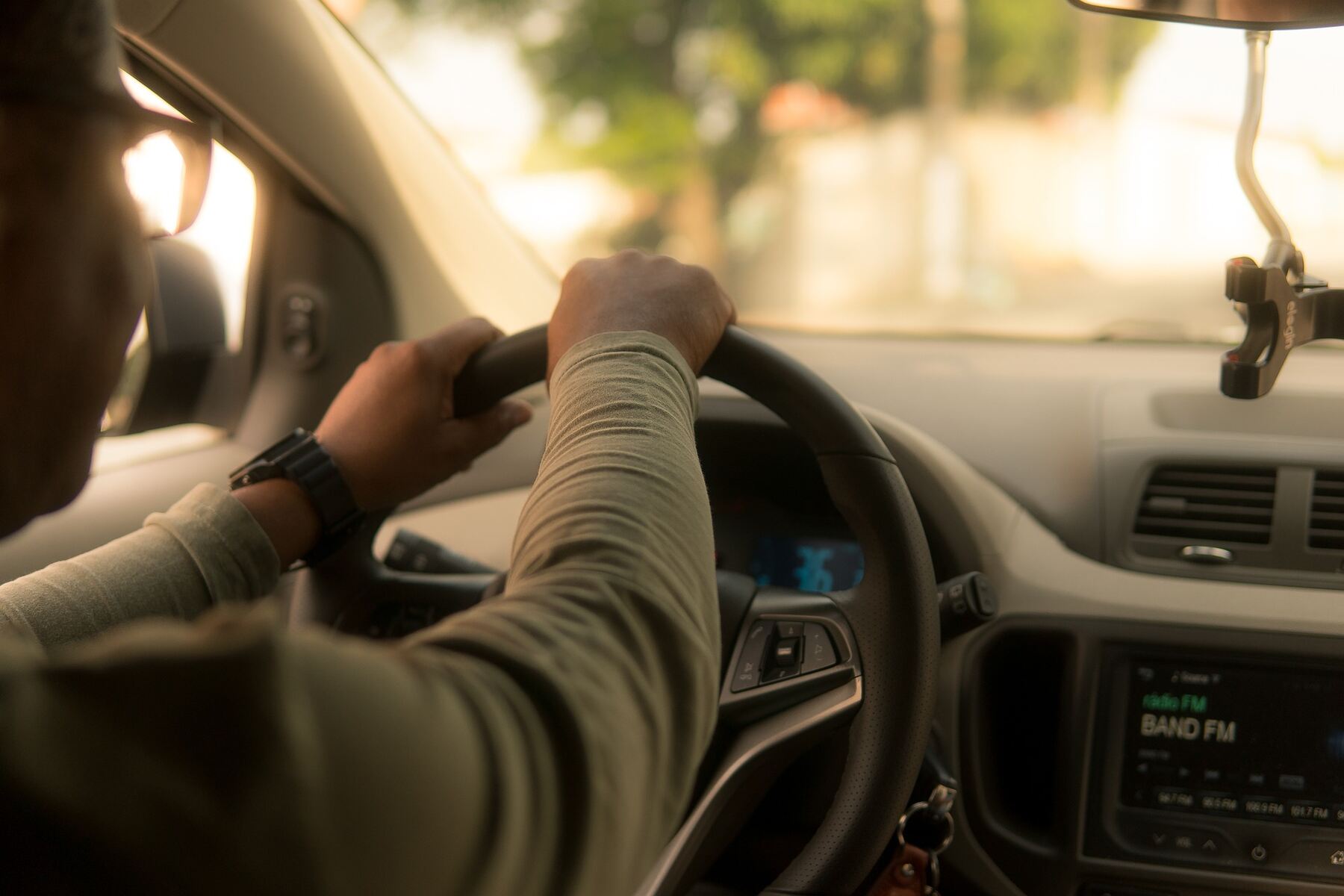Whether you are an Uber driver or the other driver who was in an accident involving an Uber driver, you may wonder if you can hold Uber liable. Can a driver sue Uber for damages? Below, our Los Angeles Uber accident attorneys discuss what to know about suing Uber.
Can a Driver Sue Uber for an Accident?
Can a driver sue Uber? The answer is it depends. Uber drivers and drivers of other rideshare companies are not classified as employees. Rideshare drivers are independent contractors. While drivers have won a class action lawsuit or two against Uber over recent years, they have not pertained to accident liability. Because of worker classification, Uber has been able to generally deny direct liability for accidents involving an Uber driver.
However, depending on the circumstances of the accident, Uber may be directly liable for damages. How? Uber, Lyft, and other rideshare companies are Transportation Network Companies (TNCs). California requires TNCs to ensure its drivers are safely operating their vehicles before being able to offer service. Uber must conduct background checks on its drivers, including driving records and criminal history. If it negligently approves someone with a record of reckless driving to drive for Uber, Uber may be directly liable for damages if that Uber driver causes an accident.
Additionally, Uber must have commercial auto insurance for its drivers. This coverage may act as primary or secondary coverage in the event of an accident. While Uber may not be directly liable for an accident involving an Uber driver, you may be able to file a claim against Uber’s insurance to recover compensation for medical bills, lost wages, and other losses.
Uber drivers in California are also covered by Uber’s Injury Protection insurance. If you are an Uber driver who suffered injuries in an accident while online in the app, you may be able to file a claim for Injury Protection benefits. These benefits include:
- Uber offers disability payments of up to $1,324 per week
- Medical expenses related to the accident of up to $1 million
- Survivor benefits of up to $320,000 for eligible dependents
Not Sure If You Have a Case?
Let an experienced attorney review the details and explain your legal options—no pressure, just clarity.
Contact Us for a Free Consultation: 800-824-5416
What Is the Process of Filing a Lawsuit Against Uber?
The process of filing a lawsuit against Uber can be complex. The steps below may give you a better idea of what to expect if you decide to sue Uber when it crashes:
- Gather evidence. In order to have a strong claim to sue Uber, you need evidence. Gather as much evidence as you can. For example, if you were injured in an Uber accident, take pictures of the accident scene, any visible injuries, and property damages. Gather witness information. Seek medical attention as soon as possible to establish medical records. Keep your Uber receipts and records of any correspondence related to your dispute with Uber.
- Seek legal counsel. Before taking legal action, consider consulting with an attorney experienced with rideshare cases. An experienced Uber rideshare lawyer can determine whether you have a viable claim to sue Uber and your best options for pursuing compensation. If you have a viable claim, your attorney can determine liability, build a strong case, and handle the legal burden on your behalf.
- Notify Uber. Before filing a lawsuit, your attorney may send Uber a demand letter. A demand letter outlines the details of your claim against Uber, the damages you seek, and supporting evidence. It serves as an opportunity for you and Uber to avoid litigation by negotiating a settlement outside of court.
- File a lawsuit. If you do not reach a fair resolution, your attorney will help you file a complaint and summons with the appropriate court. The complaint is a detailed account of your claim against Uber, Uber’s liability, and the damages you seek. A summons is an official notice to Uber that you are suing it.
Once you file the lawsuit, you and your attorney may continue negotiating with Uber up to trial. If a settlement is not reached, the case will go to trial.
How to Recover Damages in an Uber Vehicle Accident
A successful personal injury claim to recover damages generally hinges on four fundamental elements. These elements include:
- Duty of care. You must establish that the defendant had a legal responsibility or duty to act a certain way toward you. For example, drivers have a duty to operate their vehicles safely and adhere to traffic laws to prevent harm to other motorists and road users.
- Breach of duty. Once a duty of care is established, you must demonstrate that the defendant breached or failed to uphold their duty to you.
- Causation. After proving a breach of duty, you must prove that the defendant’s breach directly caused or contributed to your injuries.
- Damages. Lastly, you must provide evidence of the actual damages or harm you suffered. Damages may include medical bills, lost income, property damage, and pain and suffering.
What Damages Are Available in an Uber Lawsuit?
You may be able to sue Uber to recover financial compensation for your injuries and damages. The specific damages available in an Uber lawsuit will depend on the unique circumstances of your case. An experienced attorney can help you determine your damages and their value so you can fight for maximum compensation for your losses.
Damages generally include economic damages and non-economic damages. In rare cases, the court may award punitive damages.
Economic Damages
Economic damages, also known as special damages, include monetary losses resulting from the accident. Common economic damages include the following:
- Medical bills. Medical expenses include all medical treatment related to injuries from the accident, like emergency care, hospital stays, surgeries, prescription medications, and rehabilitation.
- Future medical expenses. If your injuries require long-term care or future medical treatments, you may be able to recover future expected medical costs.
- Lost wages. If you have missed work due to your injuries, you deserve compensation for your lost income.
- Loss of future earnings. If your injuries keep you from returning to your previous job, you may be able to seek compensation for your loss of future earning capacity.
- Property damages. Property damages include repair or replacement costs of your vehicle, or any other personal property damaged in the accident.
Non-Economic Damages
Non-economic damages, also known as general damages, include non-monetary losses incurred in the accident. These damages are more difficult to quantify but can be just as devastating for accident victims. Common non-economic damages include:
 How Much Is Your Settlement Worth?
How Much Is Your Settlement Worth?
Schedule a completely free, no obligation consultation with our team
Schedule Consultation
- Pain and suffering. Pain and suffering damages encompass the physical pain and emotional suffering caused by an accident.
- Emotional distress. Emotional distress damages compensate for the psychological impact of an accident, which may manifest as anxiety, depression, post-traumatic stress disorder (PTSD), or other mental health conditions.
- Loss of enjoyment of life. If the accident victim cannot enjoy hobbies or activities they once loved because of the accident, they may be compensated for that loss.
- Loss of consortium. The accident victim’s spouse or partner may be able to pursue loss of consortium damages if the accident adversely affected their relationship. These damages generally include loss of love, companionship, moral support, and sexual relations. These damages are often pursued in catastrophic injury or wrongful death cases.
Punitive Damages
Punitive damages are rare in personal injury cases. However, the court may award them in cases where the defendant’s behavior was grossly negligent or involved malicious intent. These damages are in addition to monetary awards for damages. They are meant to punish the at-fault party and deter similar conduct in the future. For example, the court may award punitive damages if a drunk driver caused injury or death.
Schedule a Free Consultation With Our Los Angeles Uber Accident Lawyers
At the Law Offices of Steers & Associates, we represent individuals in all types of injury cases, including Uber accidents. If you have suffered injuries in an accident in Los Angeles or Southern California, schedule a free initial consultation to discuss your unique situation.
Whether you are an Uber driver or another motorist, we are here to answer your legal questions and discuss your potential legal options for pursuing compensation. We can also determine if we can help you with your case to sue Uber. Call our team today at (800) 824-5416 or contact us online to get started.

Allen Vaysberg practices personal injury law and works tirelessly to defeat the tactics of insurance companies and large corporations who try to deny justice and fair compensation to injured people.


